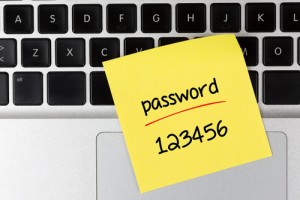Posted by Gregory M. Fliszar
on March 21, 2016
HHS,
OCR /
No Comments
 On consecutive days, the Office of Civil Rights (“OCR”) of the Department of Health and Human Services (“HHS”) recently announced two large HIPAA breach settlements. On March 16, 2016, OCR announced that it entered into a Resolution Agreement with North Memorial Health Care of Minnesota for $1.55 million plus a two-year corrective action plan. On March 17, 2016 OCR followed by announcing that Feinstein Institute for Medical research, a New York biomedical research institute, agreed to pay to OCR $3.9 million and enter into a three-year corrective action plan to settle potential HIPAA violations. Both cases resulted from the all too familiar scenario of breaches resulting from stolen, unencrypted laptops.
On consecutive days, the Office of Civil Rights (“OCR”) of the Department of Health and Human Services (“HHS”) recently announced two large HIPAA breach settlements. On March 16, 2016, OCR announced that it entered into a Resolution Agreement with North Memorial Health Care of Minnesota for $1.55 million plus a two-year corrective action plan. On March 17, 2016 OCR followed by announcing that Feinstein Institute for Medical research, a New York biomedical research institute, agreed to pay to OCR $3.9 million and enter into a three-year corrective action plan to settle potential HIPAA violations. Both cases resulted from the all too familiar scenario of breaches resulting from stolen, unencrypted laptops.
In the Minnesota hospital breach, the unencrypted laptop containing the PHI of over 9,000 individuals was stolen from the locked car of an employee of a business associate of the hospital. According to the OCR’s investigation, the hospital failed to have a business associate agreement in place with that particular business associate. OCR also alleged that the hospital had not previously performed a risk analysis to identify and address potential risks and vulnerabilities to the ePHI it maintained, accessed or transmitted.
In the New York research corporation breach, OCR alleged that the institution did not have policies and procedures in place, including a policy on encryption and one that addressed use and access of electronic devices (e.g., the removal of the devices from the institution’s facility), nor did it have in place a security management process that sufficiently addressed potential security risks and vulnerabilities to ePHI, namely, its confidentiality, vulnerability or integrity. Notably, the stolen, unencrypted laptop contained the PHI of approximately 13,000 individuals.
As above, both OCR settlements also include multiple year corrective action plans requiring the hospital and research facility to conduct risk analyses/assessments, train their employees, and have HIPAA compliant policies and procedures in place. The Resolution Agreement for the Minnesota hospital breach is available here, and the Resolution Agreement for the New York research institute breach is available here.
Takeaways: The OCR’s 2016 breach enforcement is off to a very strong start with two high dollar settlements. Lessons learned from both breaches include the significance of encrypting electronic devices, conducting and updating on a regular basis security risk assessments and analyses, having adequate safeguards in place to protect PHI, having business associate agreements with all business associates, and having and implementing HIPAA policies and procedures to protect the security and privacy of PHI, including for example, policies related to encryption, authorized access to ePHI/PHI, and removal of electronic devices from facilities.
For more information, contact Greg Fliszar, J. Nicole Martin, or a member of Cozen O’Connor’s Health Law team.
About The Authors
Tags: breach, Business Associate, Business Associate Agreement, corrective action plan, covered entity, encryption, ePHI, HHS, HIPAA, laptop, OCR, PHI, policies and procedures, resolution agreement, risk analysis, risk assessment, settlement, unencrypted
Posted by J. Nicole Martin
on September 03, 2015
HHS,
HIPAA,
OCR /
No Comments
In August 2012, a Physician Group—comprising of nearly 20 physicians—reported its HIPAA breach to HHS, which resulted from a laptop bag containing the employee’s laptop and a computer server backup being stolen from an employee’s car in July 2012. According to the Resolution Agreement between HHS and the Physician Group, the laptop did not contain ePHI, but the portable, unencrypted server backup in the employee’s bag did. The backup contained ePHI for 55,000 individuals. To settle this matter, the Physician Group has agreed to pay $750,000.
Although stolen laptops and lack of encryption is nothing new in the world of HIPAA breaches, this situation stands out for a few reasons:
- The Physician Group did not conduct “an accurate and thorough” risk assessment;
- The significance of encryption extends not only to desktop computers and laptops, but also to portable devices, including but not limited to computer server backups; and
- This is a notable fine for a Physician Group of less than 20 physicians.
For more information regarding this incident and HIPAA compliance, including the importance of encryption and risk assessments, contact J. Nicole Martin or any member of Cozen O’Connor’s healthcare law team.
About The Author
Tags: breach, computer server, encryption, ePHI, HIPAA, laptop, physician group, Security Rule
Posted by Ryan Blaney
on January 22, 2015
Encryption /
No Comments

This month, Governor Chris Christie signed into law a New Jersey bill requiring health insurance carriers (e.g., insurance companies, health service corporations, hospital service corporations, medical service corporations, HMOs that issue health benefits plans in New Jersey) to encrypt or otherwise secure computerized records of personal information (e.g., SSN, address, identifiable health information, driver’s license number) (“Bill”). The Bill provides an alternative to encryption if the carrier uses, a “method or technology rendering the information unreadable, undecipherable, or otherwise unusable by an unauthorized person.” However, password protection for computer programs, which is commonly used in the industry, is inadequate under the Bill if “the program only prevents general unauthorized access to the personal information, but does not render the information itself unreadable, undecipherable, or otherwise unusable by an unauthorized person operating, altering, deleting, or bypassing the password protection computer program.”
The Bill does not address the ramifications for insurance carriers that fail to adhere to its requirements. However, in a statement by the Bill’s sponsors, the lawmakers explained that health insurance carriers that violate the Bill would be subject to penalties under the New Jersey consumer fraud statute, such as a monetary penalty up to $10,000 for an initial offense, and no more than $20,000 for each subsequent offense(s). Lawmakers further explained that “a violation can result in cease and desist orders issued by the Attorney General and the awarding of treble damages and costs to the injured party.”
Interestingly, this Bill only applies to health insurance carriers and not to healthcare providers, such as hospitals or physician group practices. However, it is anticipated that New Jersey will follow the industry enforcement trend that although encryption is not technically required under HIPAA it is considered a “reasonable” technical safeguard and therefore becoming an industry standard best practice. The timing of the Bill is also interesting as President Obama and the Federal Government discuss potential Federal legislation on cybersecurity, student privacy, and a national breach standard. Tune back in to the Health Law Informer for future blogs on these issues.
About The Authors
Tags: cybersecurity, encryption, HIPAA, HMO, insurance carrier, insurance company, national breach standard, password, secure, security
Posted by Ryan Blaney
on July 29, 2014
HIPAA,
HITECH /
No Comments
 Daily news stories about data breaches and enforcement actions seem to be the new norm, so it’s no surprise that people may start to believe that hackers have won the war and that no personal health information is safe. But exactly how many breaches have been reported in the last several years? And were the breaches the result of nefarious plots or just plain incompetence? About how many HIPAA investigations has the government actually launched?
Daily news stories about data breaches and enforcement actions seem to be the new norm, so it’s no surprise that people may start to believe that hackers have won the war and that no personal health information is safe. But exactly how many breaches have been reported in the last several years? And were the breaches the result of nefarious plots or just plain incompetence? About how many HIPAA investigations has the government actually launched?
Rest assured, Congress has been asking similar questions as well. The HITECH Act requires the Department of Health and Human Services Office for Civil Rights (OCR) to submit annual reports to Congress that provide contextualized information about incident rates and government action; OCR published its most recent two reports on Breaches of Unsecured Protected Health Information (Breach Report) and HIPAA Privacy, Security, and Breach Notification Rule Compliance (HIPAA Compliance Report). In addition to including cumulative data, the reports cover relevant activities that occurred between January 1, 2011, and December 31, 2012. Continue reading…
About The Authors
Tags: breach, breach notification rule, Compliance, encryption, ePHI, HHS, OCR, Privacy Rule, Security Rule
Posted by Ryan Blaney
on May 28, 2014
HIPAA /
No Comments
 The Department of Health and Human Services (HHS) Office for Civil Rights (OCR) settled for the collective amount of $1,975,220 with Concentra Health Services (Concentra) and QCA Health Plan, Inc. (QCA). The settlements stem from OCR investigations in 2011 and 2012 related to each of the companies reporting a single stolen laptop; Concentra also had a laptop stolen in 2009.
The Department of Health and Human Services (HHS) Office for Civil Rights (OCR) settled for the collective amount of $1,975,220 with Concentra Health Services (Concentra) and QCA Health Plan, Inc. (QCA). The settlements stem from OCR investigations in 2011 and 2012 related to each of the companies reporting a single stolen laptop; Concentra also had a laptop stolen in 2009.
In its press release, HHS stated that after further investigating Concentra it found that Concentra was aware prior to the most recent laptop theft that not all of its laptops, desktop computers, medical equipment, tablets and other devices that contained ePHI were encrypted. But despite Concentra’s discoveries as a result of risk analyses that it had conducted, it failed to remedy the critical risks and did not encrypt all of the devices. OCR also found that Concentra had insufficient security management processes. OCR’s investigation of QCA revealed that in addition to the unencrypted laptop, QCA failed to comply with numerous HIPAA privacy and security requirements for several years.
Susan McAndrew, OCR’s Deputy Director of Health Information Privacy, reiterated the significance of encryption and the obligations of covered entities and business associates to adequately secure mobile devices when she stated that OCR’s message to covered entities and business associates is simple: “encryption is your best defense against these incidents.” Ms. McAndrew’s statement is significant and a shift from the view that although security is an obligation, encryption is not required under the HIPAA Security Rule. In light of these two settlements and the Deputy Director’s commentary it is evident that OCR views encryption as an essential security safeguard for laptops, desktop computers, medical equipment, tablets and other mobile devices. In light of these two settlements and the Deputy Director’s commentary it is evident that OCR views encryption as an essential security safeguard for laptops, desktop computers, medical equipment, tablets and other mobile devices.
Concentra has agreed to pay HHS a monetary settlement of $1,725,220 and QCA has agreed to pay $250,000. Both entities have also agreed to each undertake a corrective action plan (CAP), which CAPs include risk analyses, development of risk management plans, policy and procedure revisions, staff training and certification of staff training. Concentra’s CAP contains more onerous requirements, including the continued submission of additional documents, reports and encryption status updates to HHS. Concentra’s CAP may be more extensive than QCA’s because it already had a laptop that contained ePHI stolen in 2009 and because it failed to remedy the encryption issue it discovered during the risk analyses it performed prior to the second laptop being stolen. OCR also noted that QCA did encrypt its devices after the laptop was stolen and it discovered the breach.
For more information about the settlements and the CAPs, see the Concentra Resolution Agreement and the QCA Resolution Agreement.
Practice Tip: Audit your encryption policies and practices for all mobile devices to adequately secure your company’s mobile devices.
About The Authors
Tags: breach, corrective action plan, encryption, ePHI, HHS, OCR, risk assessment, Security Rule, self-disclosure, self-report, technical safeguards
 On consecutive days, the Office of Civil Rights (“OCR”) of the Department of Health and Human Services (“HHS”) recently announced two large HIPAA breach settlements. On March 16, 2016, OCR announced that it entered into a Resolution Agreement with North Memorial Health Care of Minnesota for $1.55 million plus a two-year corrective action plan. On March 17, 2016 OCR followed by announcing that Feinstein Institute for Medical research, a New York biomedical research institute, agreed to pay to OCR $3.9 million and enter into a three-year corrective action plan to settle potential HIPAA violations. Both cases resulted from the all too familiar scenario of breaches resulting from stolen, unencrypted laptops.
On consecutive days, the Office of Civil Rights (“OCR”) of the Department of Health and Human Services (“HHS”) recently announced two large HIPAA breach settlements. On March 16, 2016, OCR announced that it entered into a Resolution Agreement with North Memorial Health Care of Minnesota for $1.55 million plus a two-year corrective action plan. On March 17, 2016 OCR followed by announcing that Feinstein Institute for Medical research, a New York biomedical research institute, agreed to pay to OCR $3.9 million and enter into a three-year corrective action plan to settle potential HIPAA violations. Both cases resulted from the all too familiar scenario of breaches resulting from stolen, unencrypted laptops.
 Daily news stories about data breaches and enforcement actions seem to be the new norm, so it’s no surprise that people may start to believe that hackers have won the war and that no personal health information is safe. But exactly how many breaches have been reported in the last several years? And were the breaches the result of nefarious plots or just plain incompetence? About how many HIPAA investigations has the government actually launched?
Daily news stories about data breaches and enforcement actions seem to be the new norm, so it’s no surprise that people may start to believe that hackers have won the war and that no personal health information is safe. But exactly how many breaches have been reported in the last several years? And were the breaches the result of nefarious plots or just plain incompetence? About how many HIPAA investigations has the government actually launched? The Department of Health and Human Services (HHS) Office for Civil Rights (OCR) settled for the collective amount of $1,975,220 with Concentra Health Services (Concentra) and QCA Health Plan, Inc. (QCA). The settlements stem from OCR investigations in 2011 and 2012 related to each of the companies reporting a single stolen laptop; Concentra also had a laptop stolen in 2009.
The Department of Health and Human Services (HHS) Office for Civil Rights (OCR) settled for the collective amount of $1,975,220 with Concentra Health Services (Concentra) and QCA Health Plan, Inc. (QCA). The settlements stem from OCR investigations in 2011 and 2012 related to each of the companies reporting a single stolen laptop; Concentra also had a laptop stolen in 2009.